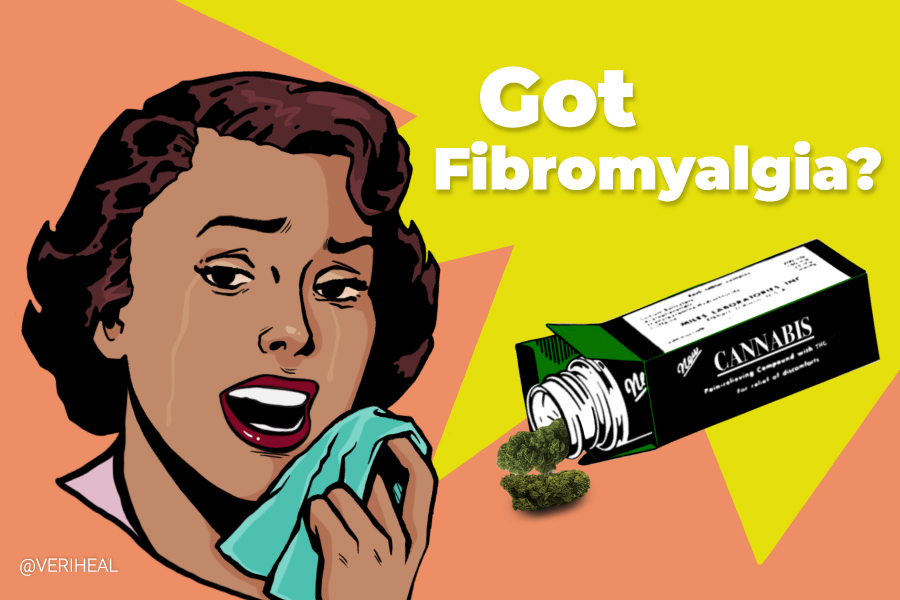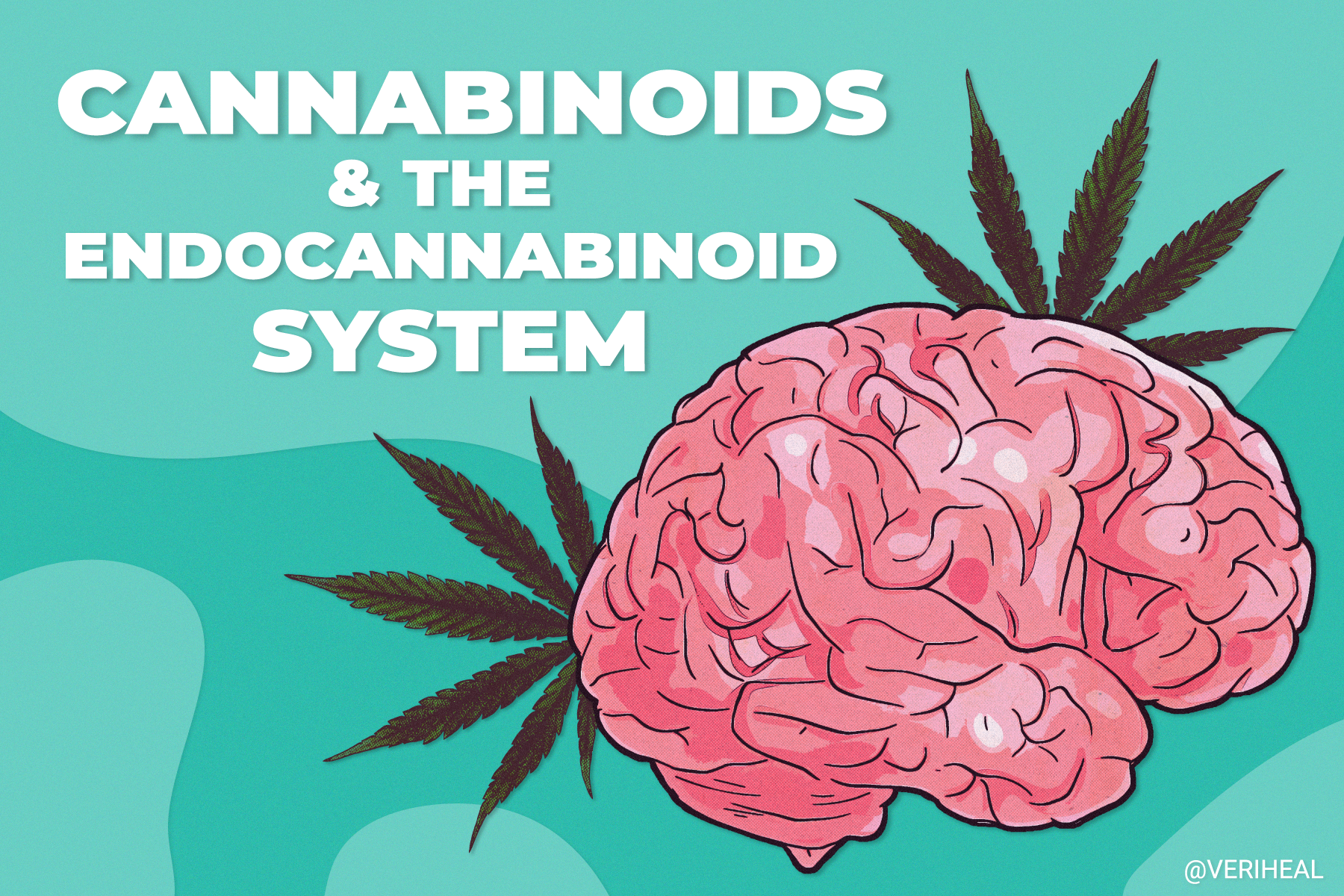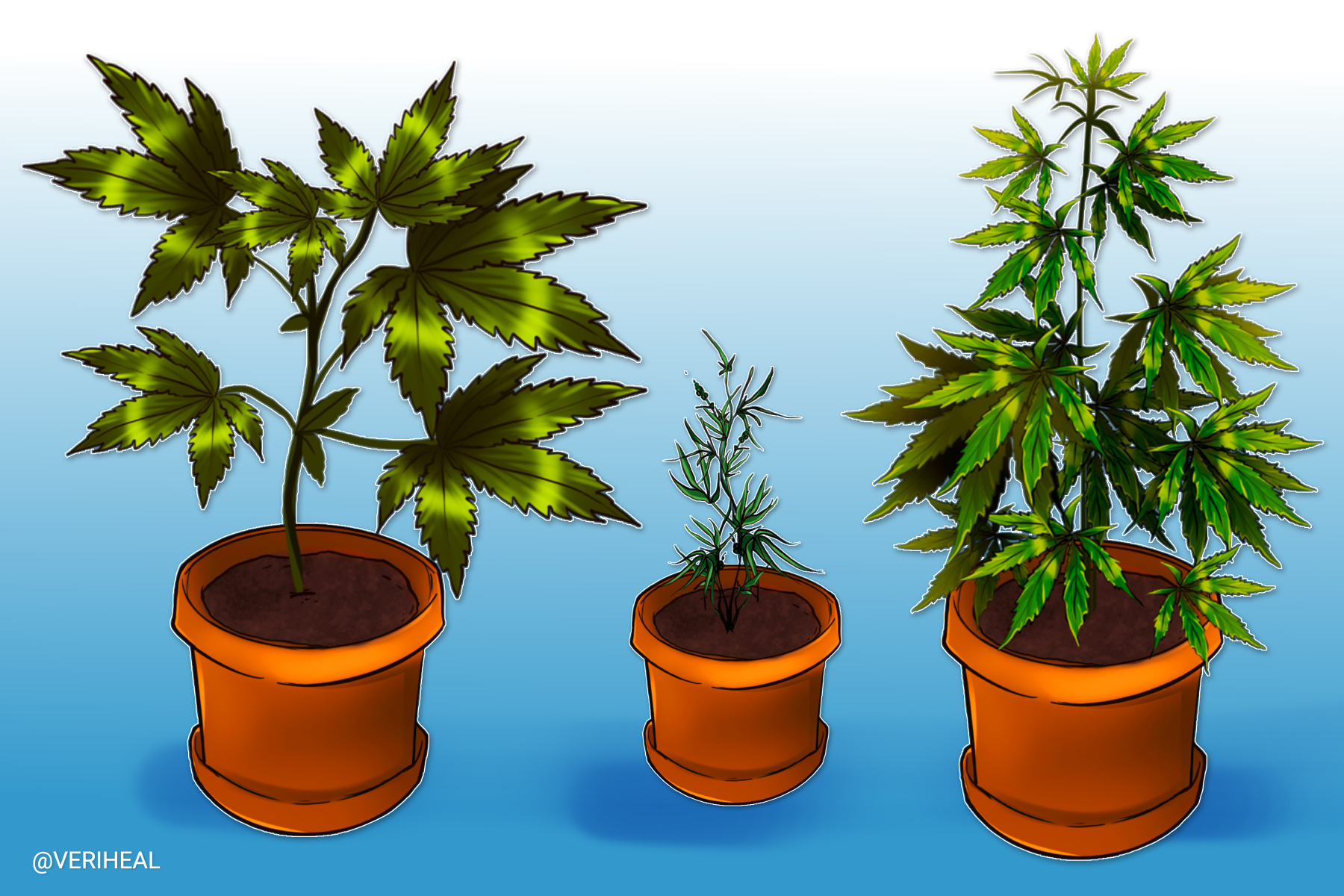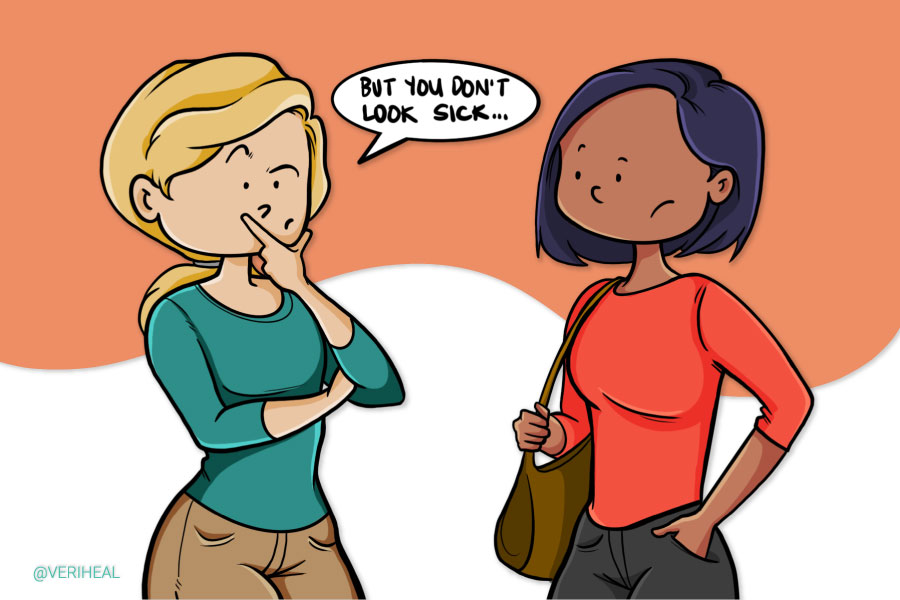Medical Marijuana May Help With Myalgic Encephalomyelitis/ Chronic Fatigue Syndrome (ME/CFS)

- Chronic Fatigue Syndrome and Medical Cannabis
- Can Cannabis Help Treat Common Symptoms of ME/CFS?
- Understanding the Levels of Severity of ME/CFS
- Treating Chronic Fatigue Syndrome (ME/CFS)
Chronic Fatigue Syndrome (CFS) — also referred to as myalgic encephalomyelitis (ME) — is a seemingly complicated disorder that is characterized by extreme fatigue and worsens with physical or mental activity, but it does not improve with rest. ME/CFS appears to have no clearly or singularly defined underlying medical condition as a cause. For individuals suffering from this condition, cannabinoids from the Cannabis sativa plant may be used to alleviate ME/CFS symptoms.
The Mayo Clinic explains that ME/CFS is characterized by extreme fatigue which lasts at least 6 months, can’t be fully explained by underlying medical conditions, sleep isn’t refreshing, dizziness when moving from lying/sitting to standing as well as difficulties with memory, focus, and concentration. CFS can present itself at any age but mostly affects young to middle-aged adults and it has been recorded that women are more commonly diagnosed than men (10).
The exact cause of ME/CFS remains unknown. There are existing theories that suggest it is caused by factors such as viral infections, immune system problems, hormonal imbalance, psychological stress (including trauma), or even a combination of factors. There is currently no test to confirm a diagnosis of CFS. It is usually diagnosed by administering tests to eliminate other conditions or/and problems. Medical professionals treat CFS by focusing on improving and providing relief from the symptoms associated with CFS.
Psychological therapy (CBT) and prescription medications are supportive options that vary in effectiveness from person to person. While no direct studies currently exist on cannabis and ME/CFS, there are anecdotal reports of symptomatic relief.
Chronic Fatigue Syndrome and Medical Cannabis
According to the Mayo Clinic, CFS is a combination of symptoms and an underlying cause has not been identified. Some maintain that CFS is caused by viral infections due to psychological stress, while others characterize it as a low-grade inflammatory disease. Enlarged neck lymph nodes, headaches, and constant fatigue are some possible signs of CFS, which are commonly treated with low-dose antidepressants and cognitive therapy (10).
Meanwhile, medical cannabis made a marked difference in one CFS sufferer, who told her story to Project CBD. In 2019, Melinda Misuraca detailed how, since 2005, she had seen a litany of specialists including a neurologist, endocrinologist, oral surgeon, several psychiatrists, and three ear-nose-and-throat specialists before finally being diagnosed with CFS. She decided to try medical cannabis, and after smoking THC-rich cannabis, Misuraca says within minutes something had shifted.
“The background noise of paralyzing pain grew quiet, and a calming sensation washed over me,” she wrote. Before she knew it, she was sleeping better, spending less daytime hours bedbound, and writing more while finding even more cannabis benefits. Misuraca shares the research that supported why she was relieved.
“A 2010 study in Future Medicinal Chemistry indicated that several cannabinoids were found to calm the inflammatory response through multiple pathways, which led to a reduction of associated symptoms,” she writes. The CFS sufferer concludes that while she won’t claim that cannabis completely cured her CFS, she “will say that, as part of a broader healing protocol, it has helped immensely (3).”
Can Cannabis Help Treat Common Symptoms of ME/CFS?
As with many other conditions, the symptoms an individual may experience in terms of CFS varies from person to person. Additionally, the symptoms can fluctuate in severity on a daily basis. The main symptoms of CFS include feeling tired and generally unwell but also includes the following:
- Fatigue (extreme tiredness)
- Sleep problems (including insomnia, unrefreshing or disturbed sleep)
- Unexplained muscle and/or joint pain
- Headaches
- Sore throats or glands but they aren’t swollen
- Cognitive Problems (memory, trouble with thinking and/or concentration)
- Dizziness/lightheadedness
- Fast or irregular heartbeats (heart palpitations)
- Flu-like symptoms
- Exhaustion/ Worsening of symptoms after physical or mental exertion
ME/CFS can reduce the patient’s quality of life as lifestyle restrictions come into play. Additionally, the probability of increased absences at work, depression, and even isolating oneself from social situations can increase (12). Due to the fact the cause of ME/CFS remains a mystery, the current treatment options for ME/CFS are very limited and mostly focus on minimizing the most problematic symptoms.
Fibromyalgia and ME/CFS are both illnesses characterized by extreme fatigue. Due to the fact that the conditions seem to be so interrelated, there is a continuous debate among medical health professionals about whether fibromyalgia fatigue is simply a different expression of the same disorder that causes CFS.
Fibromyalgia presents with similar symptoms to CFS including chronic pain, sleep disturbances, cognitive impairment, and psychiatric and somatic symptoms. Currently, there is only anecdotal evidence of treating ME/CFS with cannabis, but there are several studies available that support the claim that cannabis can help treat symptoms associated with fibromyalgia.
For example, a 2011 study conducted by Jimena Fiz and a research team examines the medical effectiveness of cannabis for symptom relief and improves the quality of life in patients with fibromyalgia. The study found that the patients experienced improvements in pain, stiffness, sleep, and perceived overall wellbeing. Interestingly enough, the participants also scored significantly higher for mental health compared to the participants who did not consume cannabis (5).
Since then, there has also been small double-blind, randomized trial data that support cannabinoids as a low-cost, well-tolerated therapeutic option for improving quality of life scores in fibromyalgia. This, in addition to abundant preclinical data. A 2021 systematic review, which is an analysis of many studies at once, found that “Medical cannabis appears to be a safe and effective alternative treatment option for the treatment of fibromyalgia symptoms.”
Cannabis May Help The Following ME/CFS Symptoms:
- Headaches
- Joint and muscle-related pain
- Improving sleep
- Pain associated with sore throats and glands
- Inflammation
- Focus
- Memory function
- Anxiety and stress
- Depression
The cannabinoids found in the Cannabis Sativa plant such as tetrahydrocannabinol (THC) and cannabidiol (CBD), are well known for their ability to interact with our body’s endocannabinoid system (ECS). The ECS helps the body with several processes including maintaining proper body temperature, pain perception and controlling inflammation in our body. When the receptor areas are exposed to plant-based cannnabinoids (phytocannabinoinds), they can increase or decrease our natural endocannabinoid levels.
Endocannabinoids, such as anandamide (AEA) and 2-arachidonoylglycerol (2-AG), are unique fat-based neurotransmitters that are responsible for a variety of processes in our bodies (14). These processes include regulating sleep and pain perception, as well as modulating our immune system to slow down inflammation.
The reason why cannabis is posited to treat ME/CFS, even though we remain uncertain of the illness’ cause, is because of its ability to provide symptom relief. Since the cause of ME/CFS remains elusive, treating chronic fatigue syndrome comes down to symptom management to improve the quality of life for the patient.
There is substantial research that finds medical cannabis to help treat common symptoms of ME/CFS including inflammation, chronic pain, and sleep problems. It should also be mentioned that cognitive impairment, which is also a characteristic symptom of ME/CFS, can be improved with the effective treatment of insomnia, pain, depression, and/or anxiety (15). Let’s explore the scientific evidence available to understand how cannabis could help alleviate primary symptoms associated with ME/CFS for patients.
Medical Cannabis and Chronic Pain Management
For moderate to severe cases of ME/CFS, pain relievers may be prescribed to help manage symptoms associated with the illness. Both the short-term and chronic use of prescription opioids has been associated with increased morbidity and mortality. Access to medical cannabis has been connected with a decrease in opioid prescriptions as well as dose reductions (13).
The National Academies concluded that “substantial evidence” exists for the use of cannabis and cannabinoids to treat chronic pain (6). Findings suggest that medical cannabis users managing chronic pain with cannabis—as an adjunct of or in place of opioids—may “reduce the personal and social harms associated with addiction, particularly in relation to the growing problematic use of pharmaceutical opiates (9).”
The FDA has approved three treatments for fibromyalgia-related pain: pregabalin, duloxetine, and milnacipran. However, even these treatments don’t have conclusive benefits for fibromyalgia patients. The aforementioned 2021 systematic review states “As there is no conclusive evidence providing the benefit of any specific therapy for the treatment of FMS, thus none of the drugs has been approved by the European Medicine Agency, and European League against Rheumatism [EULAR] guidelines suggest non-pharmacological interventions as the first line of treatment.
Although cannabis could have a therapeutic role in chronic pain management, further clinical trial investigation is also still needed particularly in this set of patients.
Medical Cannabis and Inflammation
Inflammation is the body’s response to harm, stress, and injury. Studies have reported that ME/CFS is accompanied by systemic inflammation, and others have defined it as a low-grade inflammatory disease characterized by diminished levels of antioxidants (4).
Cannabinoids are potent anti-inflammatory agents. Follow-up systematic reviews on CBD as an anti-inflammatory and antioxidant continue to be published with new findings such as the fact that CBD is a more potent antioxidant than Vitamin C or E (1).
According to available research on the ECS, there are two kinds of cannabinoid receptors that have been studied extensively, CB1 and CB2 receptors. CB2 receptors are primarily found on the cells of the immune system. CB1 receptors are predominantly expressed in the brain, yet are also found in immune cells. This suggests that cannabinoids play an important role in the regulation of the immune system (11).
Medical Cannabis and Sleep Problems
“CFS/ME is a complex and severely debilitating condition. Non-restorative sleep, reduced sleep quality, and extended periods of sleep are commonly reported, however, the basis of these symptoms is unclear (7).”
Again, medical cannabis proves to help the symptom by the non-psychoactive cannabidiol CBD and psychoactive THC.
In 2008, a study reported by journal Sleep Medicine Reviews showed how “smoked marijuana and oral Delta-9-tetrahydrocannabinol (THC) reduce REM sleep. Moreover, acute administration of cannabis appears to facilitate falling asleep and to increase Stage 4 sleep (18).”
A clinical trial in 2021 exploring treating insomnia with medical cannabis found that “two weeks of nightly sublingual administration of a cannabinoid extract (ZTL-101) is well tolerated and improves insomnia symptoms and sleep quality in individuals with chronic insomnia symptoms (20).” This trial was placebo-controlled and randomized, giving it greater evidence strength.
Echoing this, larger systematic reviews on cannabis and sleep have shown therapeutic potential for cannabinoids like THC, CBD, and nabilone for insomnia, daytime sleepiness, PTSD nightmares, and REM sleep behavior disorder. However, the overall data so far is still on the relatively weaker side and some studies note that THC in the long term may impair sleep quality (2, 17).
Understanding the Levels of Severity of ME/CFS
Mild ME/CFS:
Individuals with mild ME/CFS are able to carry out everyday activities but find them challenging. Which often leads to giving up on hobbies and/or social activities in order to rest.
Moderate ME/CFS:
Individuals with moderate ME/CFS will have difficulties moving around and will have problems carrying out everyday activities. These individuals will often give up on major aspects of their lives such as work or education. They also experience the need to rest often and experience trouble sleeping at night.
Severe ME/CFS:
Individuals with severe CFS can only perform basic daily tasks and may even be housebound or bedbound. These individuals may require a wheelchair to get around. They also have difficulty concentrating, may be sensitive to light and noise as well as taking longer to recover between activities.
Treating Chronic Fatigue Syndrome (ME/CFS)
Despite the unquestionable need for more research, cannabis has been around long enough to have accumulated plenty of anecdotal evidence with reports of reduction in the need for pharmaceutical medication and alleviated symptoms related to an array of conditions and illnesses as well as improved quality of life.
Chronic Fatigue Syndrome can be challenging to live with and even more challenging to treat. Cannabis may not have the research to back up its benefits specifically for CFS but there is enough research to show that the symptoms of CFS will be made better through the consumption of cannabis.
Individuals suffering from CFS can consume cannabis in whichever method suits them best one should remember that the type of strain for CFS is important. The relief you find from cannabis for ME/CFS will largely depend on the chemovar, or strain, of cannabis you consume as well as the time of day. Indica-dominant varieties are associated with relaxation and pain relief, plus they tend to have a higher quantity of CBD. These are popular to take at nighttime to help induce sleep.
However, it is not advisable to take a cannabis strain that ends up providing the opposite of the desired daytime effects, such as making you feel couch-locked. Although most strains available are hybrids, it is important to seek out Sativa-dominant hybrids which can offer effects such as bursts of energy, increased focus, and symptom management and relief during the day.
After you have selected an appropriate strain you should then consider your preferred consumption method. Edibles and tinctures are often preferred methods of consumption for medical cannabis patients due to the fact that these options offer longer-lasting symptom relief. CBD products can come in various forms including cannabis flower, CBD oil, edibles, and topicals. Consult with a licensed physician about your condition and check your local dispensary for products that most suit your needs based on their recommendation.
Note: Veriheal does not intend to give this as professional medical advice. Do not attempt to self-diagnose, or prescribe treatment based on the information provided on this page. Always consult a physician before making any decision on the treatment of a medical condition.
1. Atalay, S., Jarocka-Karpowicz, I., & Skrzydlewska, E. (2019). Antioxidative and anti-inflammatory properties of Cannabidiol. Antioxidants, 9(1), 21. https://www.ncbi.nlm.nih.gov/labs/pmc/articles/PMC7023045/
2. Babson, K. A., Sottile, J., & Morabito, D. (2017). Cannabis, cannabinoids, and sleep: A review of the literature. Current Psychiatry Reports, 19(4). https://link.springer.com/article/10.1007/s11920-017-0775-9
3. Cannabis & Chronic Fatigue Syndrome. Project CBD. (n.d.). Retrieved March 2, 2022, from https://www.projectcbd.org/ja/medicine/cannabis-chronic-fatigue-syndrome-0
4. Cortes Rivera, M., Mastronardi, C., Silva-Aldana, C., Arcos-Burgos, M., & Lidbury, B. (2019). Myalgic encephalomyelitis/chronic fatigue syndrome: A comprehensive review. Diagnostics, 9(3), 91. https://www.mdpi.com/2075-4418/9/3/91
5. Fiz, J., Durán, M., Capellà, D., Carbonell, J., & Farré, M. (2011). Cannabis use in patients with fibromyalgia: Effect on symptoms relief and health-related quality of life. PLoS ONE, 6(4). https://pubmed.ncbi.nlm.nih.gov/21533029
6. The health effects of cannabis and cannabinoids. (2017). https://www.nap.edu/catalog/24625/the-health-effects-of-cannabis-and-cannabinoids-the-current-state
7. Jackson, M. L., & Bruck, D. (2012). Sleep abnormalities in chronic fatigue syndrome/MYALGIC ENCEPHALOMYELITIS: A Review. Journal of Clinical Sleep Medicine, 08(06), 719–728. https://www.ncbi.nlm.nih.gov/labs/pmc/articles/PMC3501671/
8. Jr, D. T., Upham, B., Dunleavy, B. P., Jackson, K., Landau, M. D., & Marks, L. (2011). Link between fibromyalgia fatigue & chronic fatigue. EverydayHealth.com. Retrieved February 14, 2022, from https://www.everydayhealth.com/fibromyalgia/fibromyalgia-and-chronic-fatigue-syndrome.aspx
9. Lucas, P. (2012). Cannabis as an adjunct to or substitute for opiates in the treatment of chronic pain. Journal of Psychoactive Drugs, 44(2), 125–133. https://pubmed.ncbi.nlm.nih.gov/22880540/
10. Mayo Foundation for Medical Education and Research. (2020, September 24). Chronic fatigue syndrome. Mayo Clinic. Retrieved February 14, 2022, from https://www.mayoclinic.org/diseases-conditions/chronic-fatigue-syndrome/symptoms-causes/syc-20360490
11. Nagarkatti, P., Pandey, R., Rieder, S. A., Hegde, V. L., & Nagarkatti, M. (2009). Cannabinoids as novel anti-inflammatory drugs. Future Medicinal Chemistry, 1(7), 1333–1349. https://www.ncbi.nlm.nih.gov/labs/pmc/articles/PMC2828614/
12. NHS. (2021). Myalgic encephalomyelitis or chronic fatigue syndrome (ME/CFS). NHS choices. Retrieved February 14, 2022, from https://www.nhs.uk/conditions/chronic-fatigue-syndrome-cfs/symptoms/
13. Powell, D., Pacula, R. L., & Jacobson, M. (2018). Do medical marijuana laws reduce addictions and deaths related to pain killers? Journal of Health Economics, 58, 29–42. https://pubmed.ncbi.nlm.nih.gov/29408153/
14. Ritter, J. K. (2016). Anandamide and its metabolites what are their roles in the kidney. Frontiers in Bioscience, 8(2), 264–277. https://www.ncbi.nlm.nih.gov/pmc/articles/PMC6267779/
15. Rowe, P. C., Underhill, R. A., Friedman, K. J., Gurwitt, A., Medow, M. S., Schwartz, M. S., Speight, N., Stewart, J. M., Vallings, R., & Rowe, K. S. (2017). Myalgic encephalomyelitis/chronic fatigue syndrome diagnosis and management in Young People: A Primer. Frontiers in Pediatrics, 5. https://www.ncbi.nlm.nih.gov/labs/pmc/articles/PMC5474682/
16. Sagy, I., Bar-Lev Schleider, L., Abu-Shakra, M., & Novack, V. (2019). Safety and efficacy of medical cannabis in fibromyalgia. Journal of Clinical Medicine, 8(6), 807. https://www.mdpi.com/2077-0383/8/6/807
17. Sarris, J., Sinclair, J., Karamacoska, D., Davidson, M., & Firth, J. (2020). Medicinal cannabis for psychiatric disorders: A clinically-focused systematic review. BMC Psychiatry, 20(1). https://bmcpsychiatry.biomedcentral.com/articles/10.1186/s12888-019-2409-8
18. Schierenbeck, T., Riemann, D., Berger, M., & Hornyak, M. (2008). Effect of illicit recreational drugs upon sleep: Cocaine, ecstasy and marijuana. Sleep Medicine Reviews, 12(5), 381–389. https://pubmed.ncbi.nlm.nih.gov/18313952/
19. Smith, S. C., & Wagner, M. S. (2014). Clinical endocannabinoid deficiency (CECD) revisited: Can this concept explain the therapeutic benefits of cannabis in migraine, fibromyalgia, irritable bowel syndrome and other treatment-resistant conditions? Neuro endocrinology letters. Retrieved February 14, 2022, from https://pubmed.ncbi.nlm.nih.gov/24977967/
20. Walsh, J. H., Maddison, K. J., Rankin, T., Murray, K., McArdle, N., Ree, M. J., Hillman, D. R., & Eastwood, P. R. (2021). Treating insomnia symptoms with medicinal cannabis: A randomized, crossover trial of the efficacy of a cannabinoid medicine compared with Placebo. Sleep, 44(11). https://pubmed.ncbi.nlm.nih.gov/34115851/








